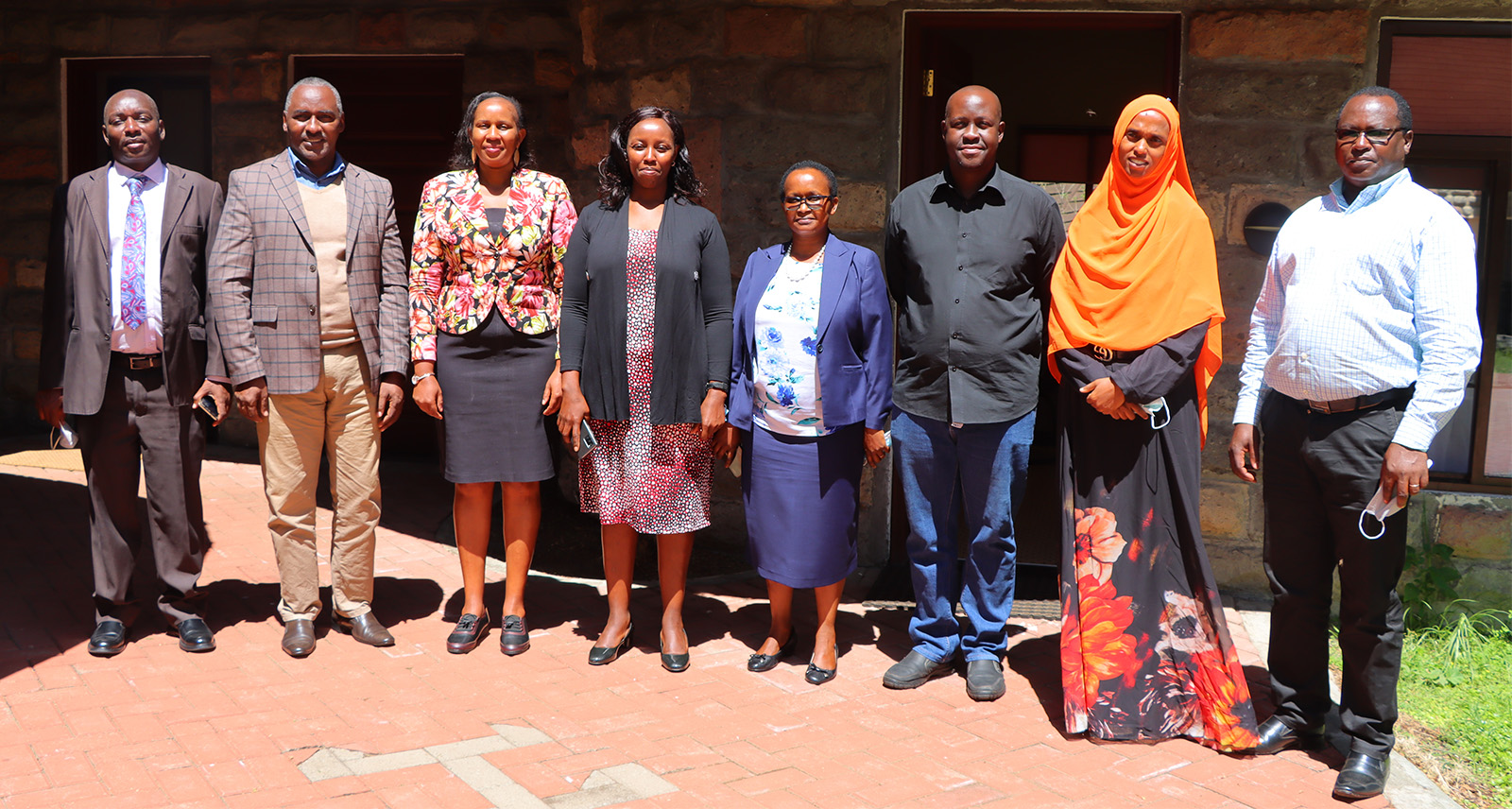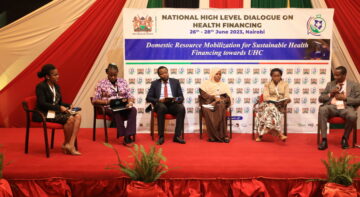Blogs

AFIDEP, through the Heightening Institutional Capacity for Government Use of Health Research (HIGH-Res) Project is collaborating with universities/ research institutes in Kenya, Malawi and Uganda to introduce an evidence-informed policy-making (EIPM) curriculum in their existing training programmes. As one of the universities identified for this collaboration, AFIDEP kicked off a Training of Trainers (ToT) workshop with select researchers and lecturers from the Jomo Kenyatta University of Agriculture and Technology (JKUAT). The workshop was held between 25 – 29 October 2021 in Naivasha, Kenya.
The objective of the workshop was to equip the selected lecturers and researchers with the skills needed to conduct the EIPM training course set to be rolled out next year in the university. It is expected that the EIPM short course will be offered at the JKUAT main campus, as well as select campuses, and will target postgraduate students, professionals and technocrats in various fields to strengthen their capacity to use evidence, especially health research in decision-making.
The workshop was officially opened by Prof. Robert Kinyua – Deputy Vice Chancellor, Academic Affairs Division at JKUAT. In his opening remarks, Prof. Kinyua commended AFIDEP on the comprehensive development of the EIPM curriculum and assured both AFIDEP and JKUAT teams support from the university management in ensuring the successful incorporation and roll-out of the curriculum.
He further noted, that the education sector is currently undergoing a lot of transformation, and this could not have come at a better time. “An evidence-based approach is very crucial, especially at a time when as a country, we are transitioning to the competence-based curriculum,” he said.
Evidence plays an important role in improving policy, programme and practice decisions that ultimately improve development effectiveness and outcomes. Unfortunately, the use of evidence in decision-making remains suboptimal due to bottlenecks that operate at individual, system and institutional levels. There are many widely acknowledged barriers to evidence use, including but not limited to lacking or weak relationships between decision-makers and producers of evidence; untimely and/or irrelevant evidence; inappropriately packaged evidence; political will and interests; weak capacity among decision-makers to find and use evidence; and the lack of wide dissemination of evidence.
The EIPM curriculum, developed by AFIDEP aims to respond to the challenge of weak capacity among decision-makers and experts to generate, identify and use evidence in decision- and policy-making processes. This will be achieved through strengthening the technical capacity of policy-makers in the health sector and other development sectors in low- and middle-income countries to access, appraise, interpret, and utilize research evidence in decision making.
The ToT workshop with JKUAT followed a successful three-day workshop to review the EIPM curriculum that took place on 6 – 8 October, 2021 in Nairobi, Kenya. Both events were facilitated by Dr. Rose Oronje, Director of Public Policy and Knowledge Translation, and Head of Nairobi Office and Dr. Leyla Hussein Abdullahi, Research and Policy Analyst, both from AFIDEP. Participants from JKUAT present included Dr. Dennis Magu, Dr. Esther Waiganjo, Dr. Paul Njogu, Dr. Monica Karara, Ms. Anne Muthusi, and Dr. Fanon Ananda.
About the Heightening Institutional Capacity for Government Use of Health Research Project
HIGH-Res is a collaborative programme that aims to strengthen institutional capacity for the use of health research in policy and programme decisions in Kenya, Malawi and Uganda. This is achieved through the design, implementation and continuous evaluation of innovative and politically responsive interventions within the Ministries of Health (MoHs) in the three countries.
Related Posts





